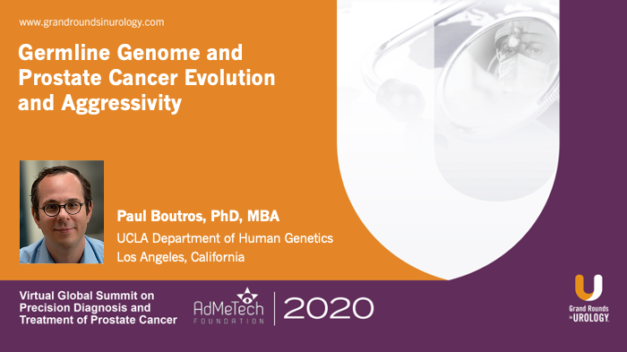The Prostate Cancer Proteome
Paul Boutros, PhD, MBA, gives a talk on the under-explored prostate cancer proteome. Dr. Boutros discusses proteomics by delving into five reasons why they are a useful tool. His talk focuses on these reasons and he goes into detail about each one. They include the fact that proteins are the actual function units of the central dogma, they are far more diverse than RNA, they have not been looked at in much detail yet, they are abundant in urine and they have immense dynamic range. His talk then goes on to cover what tissue proteomics look like, how the proteome relates to other things we care about such as MRI visibility and urinary proteomics. He ends the talk by going over some of the caveats and reasons that proteomics might not work. Overall proteomics are incredibly complex and few have the skills to properly analyze, but it remains a major opportunity to move forward in the field.
Read More


